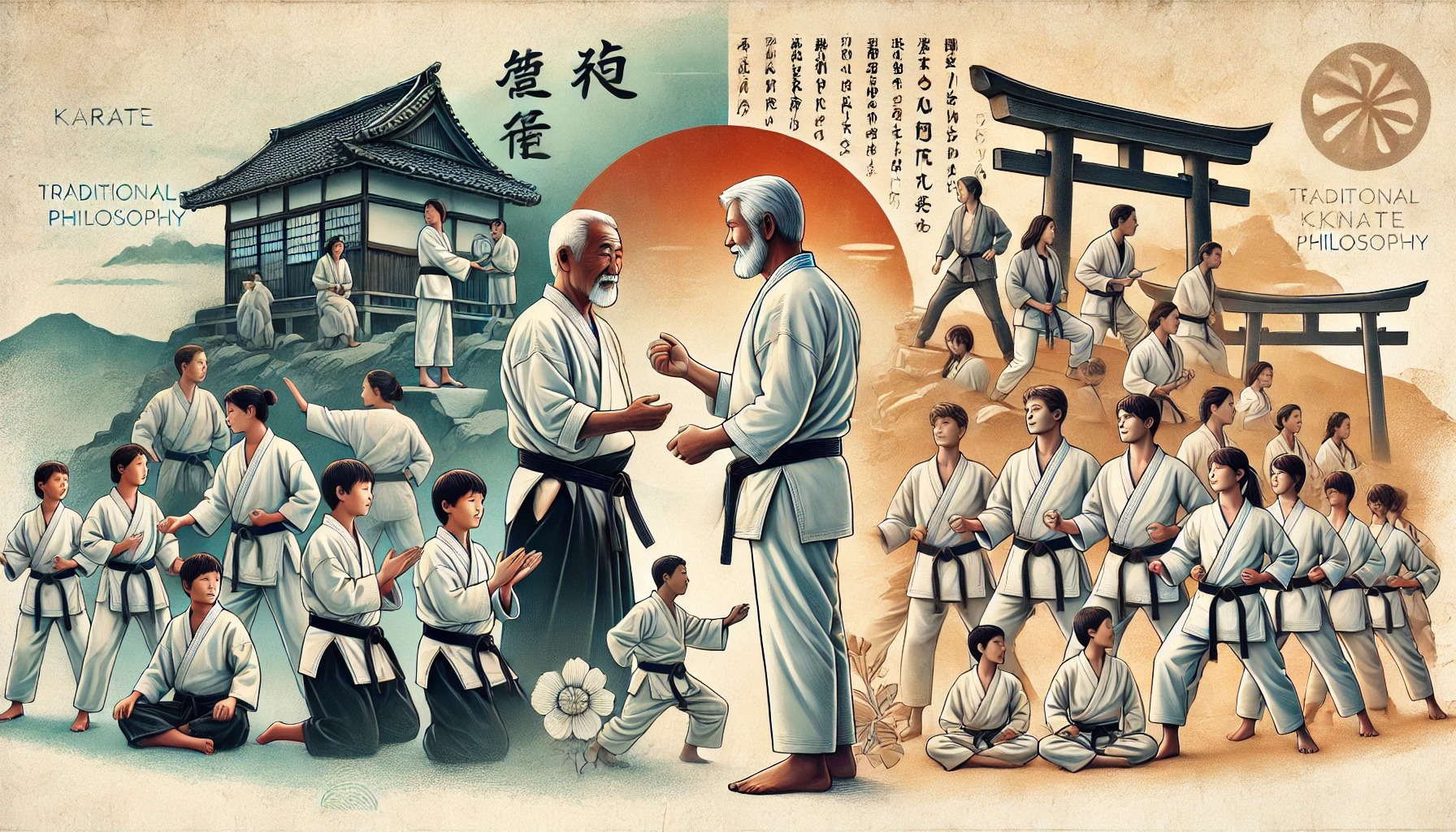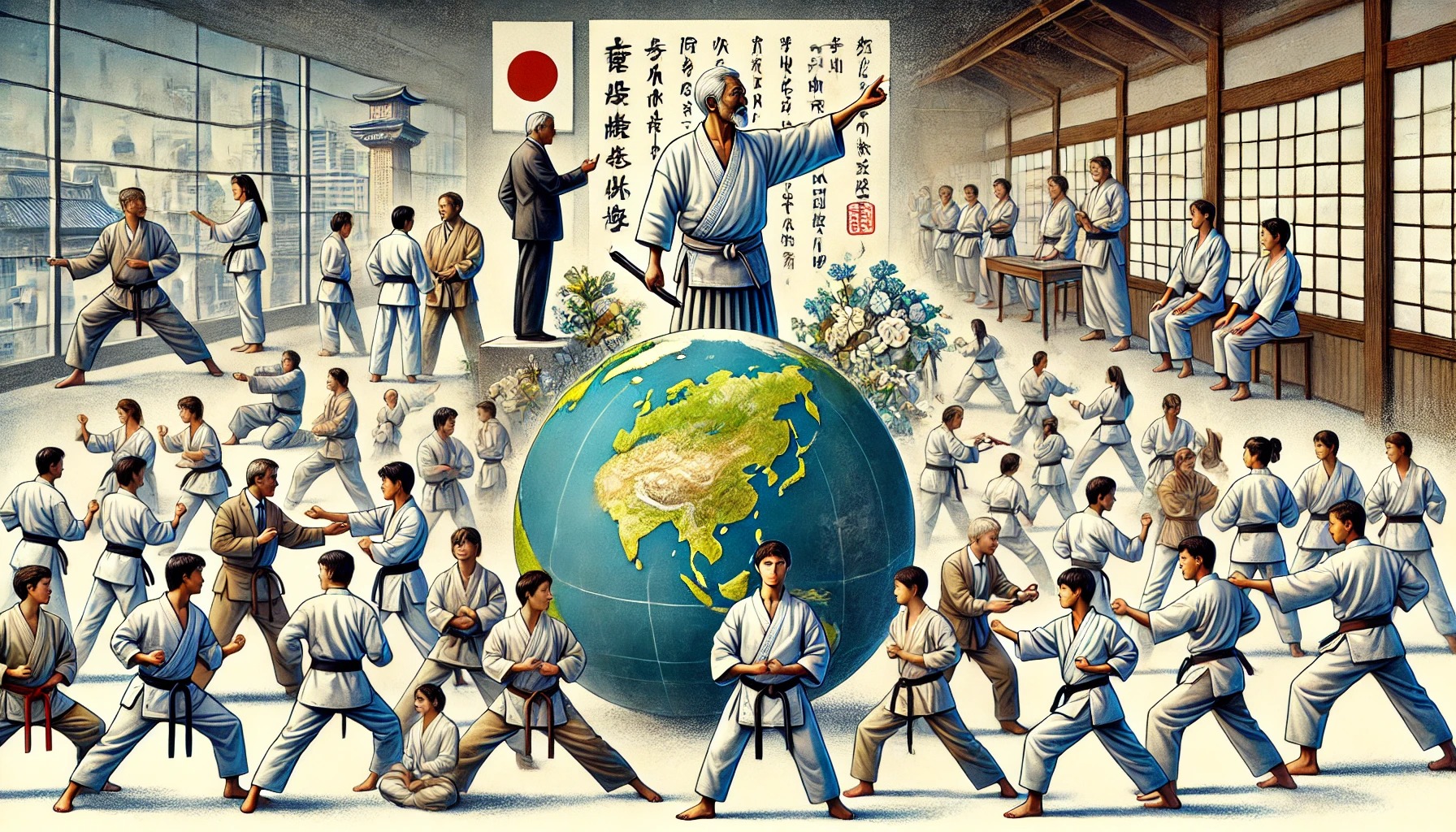The Evolution of Karate Philosophy: From Traditional Okinawa to Modern Practice
Karate, a martial art known for its powerful strikes and defensive techniques, has undergone a fascinating evolution since its origins in Okinawa. While the techniques and forms of Karate have spread around the world, so too has its deep philosophical foundation, which remains integral to the practice. This article explores how Karate philosophy has evolved over time—from its early roots in Okinawa to its modern interpretation in diverse cultures across the globe—while maintaining the core principles of respect, discipline, and self-improvement.

Origins in Okinawa: A Martial Art with Purpose
Karate traces its roots back to the Ryukyu Kingdom in Okinawa, where it was originally developed as a form of self-defense. The early masters of Karate, such as Sokon Matsumura and Anko Itosu, emphasized not only physical combat techniques but also a strong moral code. These early pioneers believed that Karate should be used responsibly, with an emphasis on developing personal character and moral integrity. For them, Karate was not simply about defeating an opponent; it was about cultivating virtues like humility, respect, and self-discipline.
The practice of Karate was heavily influenced by the island's culture and was shaped by interactions with Chinese martial arts. This cultural exchange contributed to the development of both the physical techniques and the underlying philosophical framework that emphasized the importance of self-control, mental focus, and ethical behavior.
The Global Spread of Karate
Karate first began to spread outside of Okinawa in the early 20th century, when masters like Gichin Funakoshi introduced the martial art to mainland Japan. Funakoshi, often regarded as the father of modern Karate, was instrumental in adapting the art to the cultural values of Japan. He emphasized Karate as a means of developing the mind and spirit, integrating elements of Zen Buddhism into the practice. His teachings stressed that Karate was not merely a means of self-defense but a path to self-improvement.
As Karate continued to spread throughout the world after World War II, it was embraced by diverse cultures. American soldiers stationed in Okinawa were among the first to bring Karate to the West. Over time, dojos began springing up in Europe, North America, and beyond, each interpreting Karate's philosophy within their cultural contexts.
While the methods of teaching and practice varied, the core values of respect, discipline, and perseverance remained constant. Karate became more than just a martial art—it became a global philosophy that transcended national boundaries.

Adaptations to Modern Society
As Karate has evolved, so too has its philosophy adapted to fit the needs of contemporary society. While the early masters focused on Karate as a tool for self-defense and personal development, modern Karate has taken on additional roles as a sport, a form of fitness, and a means of stress relief. Many practitioners today approach Karate as a way to maintain physical and mental well-being, while also honing their ability to focus and manage stress.
In modern dojos, Karate is often taught as a means of building confidence, self-esteem, and resilience. Children and adults alike are encouraged to see Karate as a lifelong journey of personal growth. While traditional forms and techniques are still practiced, there is also an emphasis on adapting Karate to fit modern lifestyles, with shorter, more flexible training sessions that fit into busy schedules.
Despite these adaptations, the core philosophical principles of Karate have remained unchanged. Respect for others, self-discipline, and the pursuit of self-improvement are still at the heart of Karate practice. Modern practitioners are encouraged to live by the principles of the Dojo Kun, maintaining humility, honesty, and dedication to their training.
Karate’s Global Influence
Karate's global reach has also led to cultural variations in its practice and philosophy. In some countries, Karate is viewed as a competitive sport, with a focus on tournaments and ranking. In others, it is practiced primarily as a means of self-defense or as part of a broader spiritual practice.
For example, in Japan, traditional Karate is still closely linked to Zen Buddhism and the concept of "mushin" (no mind), which emphasizes mindfulness and mental clarity. In the West, however, Karate is often taught with a focus on fitness and physical empowerment, though the underlying values of respect and discipline remain intact.
Despite these differences, the global spread of Karate has strengthened the art's philosophical foundation. By being embraced in different cultural contexts, Karate has proven its versatility and adaptability while still holding true to its core values.
A Modern Path Rooted in Tradition
As Karate continues to evolve, its philosophy remains a powerful guide for practitioners around the world. Whether training in a traditional Okinawan dojo or a modern studio in a bustling city, Karate students are connected by the same principles of respect, discipline, and self-improvement. These timeless values are what make Karate not just a martial art, but a way of life—a path that leads to both physical mastery and spiritual growth.
Karate’s evolution demonstrates its ability to remain relevant across generations and cultures, continually inspiring practitioners to strive for excellence, both in their practice and in their lives.
